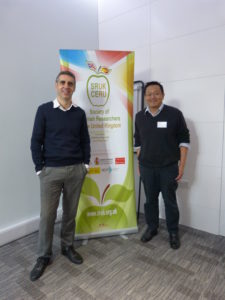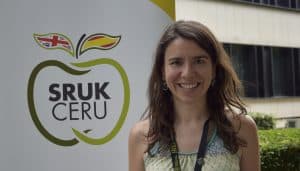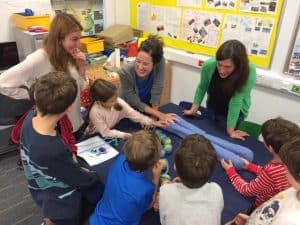“A cancer cell is smarter than a hundred doctors together”
Manel Esteller, researcher at the Bellvitge Institute for Biomedical Research (IDIBELL) in Barcelona, highlights the important role of epigenetics in the development of cancer treatments.
The third Christmas Seminar held by the Society of Spanish Researchers in the United Kingdom (SRUK) in Sheffield and financially supported by the Ramón Areces Foundation brought together the experts in epigenetics Dr. Manel Esteller and Dr. Ron Chen, who presented the latest developments in epigenetics research and its relevance in the development of new treatments for diseases such as cancer, Parkinson’s or Alzheimer’s.

Sheffield, November 28th, 2016. In the onset of human diseases such as cancer and Parkinson’s, epigenetic modifications, which describes changes occurring above the DNA sequence, can affect gene expression and, therefore, can modify an organism’s phenotype. This type of regulation occurs in all living organisms, and it is known to be the key in the incidence of some human diseases. The event “Epigenetics: Beyond the DNA sequence”, the traditional Christmas Seminar organized in Sheffield by the Society of Spanish Researchers in the United Kingdom (SRUK) and funded mainly by the Ramón Areces Foundation, brought together the scientific community with two of the world-leading researchers in this area, Dr. Manel Esteller (from the Bellvitge Institute of Biomedical Research (IDIBELL), Barcelona, Spain) and Dr. Ron Chen (from the University of Leeds, UK).
Dr. Chen focused his talk on the specific changes occurring in the histones of gene promoter regions known as “CpG islands”, where the accessibility of the DNA is increased to facilitate expression by epigenetic modifications. He also explained the great similarities between human epigenetic marks and those occurring in the model organism used in his studies, C. elegans, a nematode widely used in genetic studies. In addition, Dr. Chen impressed the audience with his findings on transgenerational epigenetic inheritance that allows successive generations to express a phenotype different to the one encoded in their genes but encoded by their ancestors. These new generations are conditioned by their ancestors and would express their characteristics (e.g. grandchildren expressing features of the grandparents despite not finding genetic basis in the phenotype), which would allow them, among other things, to acquire beneficial characteristics such as an increase in their longevity. Afterwards, Dr. Manel Esteller delighted us with a brilliant presentation about the role that epigenetics plays in the development of cancer. During his talk, Dr. Esteller explained how DNA methylation, which contributes to human natural variability, undergoes changes that are determinant in the type of cancer that a patient will suffer and in the disease development. Each cancer type and every person have their own methylation profile, and these specific features could become a target for the development of new drug treatments. Dr. Esteller concluded by saying that there is still much to understand as we are only seeing “the tip of the iceberg”.
This event finalized with a roundtable entitled “Genes or the Environment?” moderated by Dr. Ana Lopez (University of Sheffield, UK), a postdoctoral researcher specialised in plant epigenetics and member of SRUK, who described her research in the epigenetic mechanisms that regulate the plants immune system. Speakers and attendees had the opportunity to discuss the ground-breaking field of transgenerational inheritance and the effect of external conditions on the development of a specific phenotype, such as the development of cancer. The roundtable therefore debated the theories of Darwin and Lamarck, concluding that, based on epigenetics basis, Lamarck’s theories should now be much more widely accepted.




